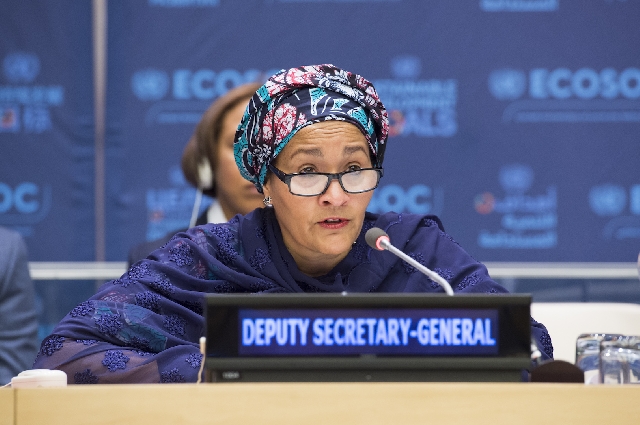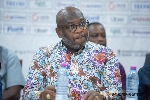263m children out of school | Achieving quality edu for all by 2030 off track – UN Dep Sec-Gen
 UN Deputy Secretary-General, Amina Mohammed
UN Deputy Secretary-General, Amina Mohammed
UN Deputy Secretary-General, Amina Mohammed, warned on Monday, 10 April 2023, that despite global promises and progress, some 263 million children and young people are out of school, indicating that achieving quality education for all by 2030 is “seriously off track”.
Speaking at the 56th session of the Commission on Population and Development taking place at UN Headquarters in New York, Ms. Mohammed underlined how education is a crucial long-term investment for a sustainable future, for people and the planet.
She said countries are facing “a triple crisis in education – one of equity and inclusion, quality and relevance, to equip current and future generations with the skills they need to thrive in a fast-changing world.”
Touching on transforming the educational systems, Ms Mohammed noted “Ultimately, we need to reimagine and transform our educational systems if they are to be fit for purpose”.
“We need to learn how to learn throughout our lives, and learn to live in peace with one another and with nature,” she added.
She stressed that success will also require examining the link between education, technology and demographic trends, and acting upon the opportunities and challenges they bring.
She called for initiatives to get all learners “climate-ready” and connected to the internet and the world of digital innovation, which is especially important for girls and women from the Global South, who are the most excluded.
For her part, Natalia Kanem, Executive Director of the UN Population Fund, described education as “a door opener” and “life changer”, particularly for vulnerable women and girls.
“When provided with the knowledge and skills they need to know and claim their rights, better-educated women are more likely to be healthier, marry later and plan the number and spacing of children,” said the sexual and reproductive health agency chief.
“They are more likely to use prenatal care, to vaccinate their children and to seek health services when their children need care. They are more likely to participate in the formal labour market and earn higher incomes.”
“Education also reduces the likelihood of child marriage, female genital mutilation (FGM) and other harmful practices, and it lowers the risk of gender-based violence,” Ms Kanem stated.
She underlined the need to protect and defend education for all, including comprehensive sexuality education (CSE), which equips adolescents with information and skills to develop positive, healthy relationships.
“It makes perfect sense: give people the information and power to take charge of their own reproductive rights and choices, and development outcomes improve,” she said.
Trending News

Ashanti NDC members protest return of former DVLA regional director
14:24
Ghana revokes diplomatic and service passports of former officials and non-state actors
13:12
MP for Awutu Senya West supports 53 tertiary students with scholarships
11:49
Defence Minister commends Erastus Asare Donkor for anti-galamsey reporting
01:03
DVLA to open six overseas offices to help curb fake Ghanaian licences abroad
11:54
Supreme Court dismisses injunction application against President Mahama in Chief Justice case
12:41
GA/R: Tragic fire claims life of 5-year-old girl at Adjei Kojo Sancity
11:36
National Chairman is attending to some urgent issues in Accra, he will join the tour after that - Justin Kodua
00:19
COCOBOD CEO urges return to core mandate of funding cocoa
11:28
Sam George throws shade at Afenyo-Markin over police assault claims
12:21



